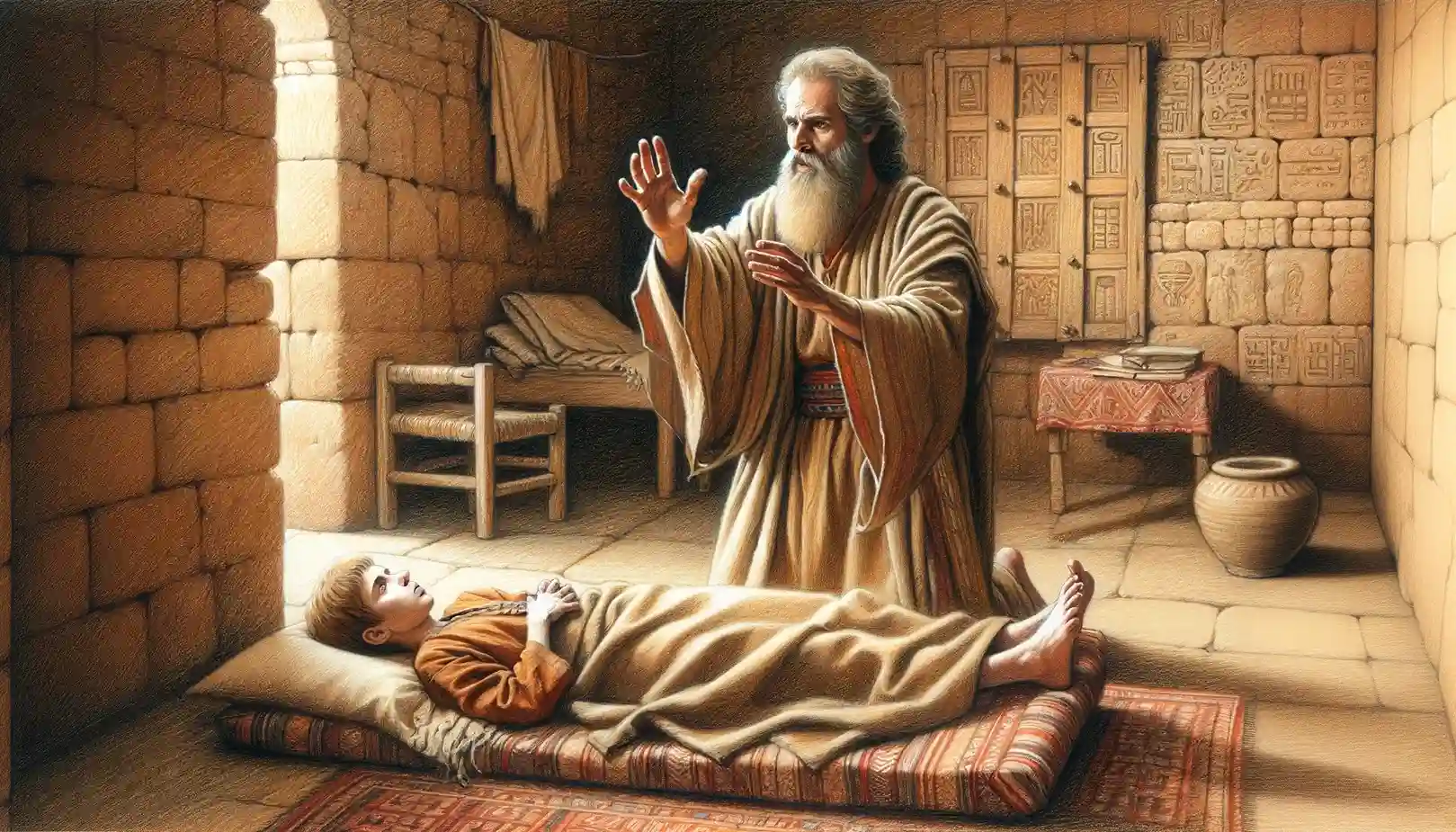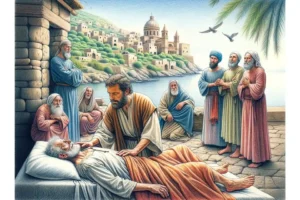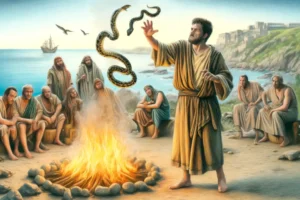
Elijah Raises the Widow’s Son: 1 Kings 17:22
The story of Elijah raising the widow’s son, as recorded in 1 Kings 17:22, is a pivotal miracle in the ministry of Elijah and has several noteworthy elements:
- Context and Location: The event occurs in the town of Zarephath in Sidon during a time of severe famine. Elijah is staying with a widow and her son, who have provided him shelter.
- The Widow’s Crisis: The widow’s son falls ill and dies, which plunges her into despair, questioning Elijah’s presence and the judgement of God.
- Elijah’s Intervention: Elijah takes the boy from his mother, carries him to the upper room where he has been staying, and lays him on his own bed.
- Miraculous Resurrection: Elijah prays to God to let the boy’s life return to him. God listens to Elijah’s plea, and the boy’s life is restored.
- Affirmation of God’s Power: The miracle reaffirms God’s power through Elijah and confirms the prophet’s status as a true man of God in the eyes of the widow.
- Deepened Faith: Following the resurrection of her son, the widow expresses a profound faith in the God of Israel and in Elijah as His servant, declaring, “Now I know that you are a man of God and that the word of the Lord from your mouth is the truth.”
The account of Elijah raising the widow’s son in 1 Kings 17:22 is a profound episode that interweaves themes of faith, divine intervention, and the validation of prophetic authority. This miracle is not only a pivotal event in the ministry of Elijah but also a critical moment that exemplifies God’s mercy and power, particularly during a time of widespread hardship.
Context and Significance
The story is set in Zarephath of Sidon during a severe drought—a context that underscores the theme of divine provision and protection. Elijah, a prophet of God, has been directed by God to this foreign town, emphasizing the reach of God’s involvement beyond the borders of Israel. The widow and her household represent gentile inclusion in the divine narrative, highlighting a universal aspect of God’s mercy.
Theological Themes
- Divine Providence: Before the miracle of the son’s resurrection, there is already an ongoing miracle of the never-ending supply of flour and oil provided to Elijah, the widow, and her son during the famine. This continuous provision sets the stage for the even greater miracle to come, illustrating that God’s provision is both sustaining and life-giving.
- Testing of Faith: The death of the widow’s son tests the faith of all involved. The widow confronts Elijah, perhaps feeling betrayed by the hope she had begun to place in God’s provision. Elijah’s response—taking the boy and earnestly seeking God’s intervention—shows his deep trust in God’s power and mercy.
- Intercessory Prayer: Elijah’s actions in taking the child to the upper room, laying him on his own bed, and crying out to God are significant. They represent the role of the prophet as an intercessor who bridges the gap between humanity and God. His prayer, “O Lord my God, let this boy’s life return to him!” is a direct and poignant plea that highlights his role as a mediator.
- Miracle as Validation: The resurrection of the son serves as a divine endorsement of Elijah’s prophetic office. It confirms to the widow, and to the readers, that Elijah is a true servant of God, and that his words are indeed the words of God. This miracle, therefore, functions as a validation of God’s continuing relationship with Israel and humanity, performed through His prophets.
- Reaffirmation of Life: The restoration of life to the widow’s son is a powerful affirmation of God’s lordship over life and death. It serves as a precursor to the later miracles of resurrection in the scriptures, culminating in the New Testament with the resurrection of Christ, which offers the promise of eternal life to believers.
Conclusion
The miracle of raising the widow’s son by Elijah is not just an isolated wonder but a narrative rich with theological depth, reflecting the complex relationship between God and His people during a time of hardship. It reassures the faithful of God’s presence and power to intervene mightily and mercifully in human suffering. This account emphasizes that God’s purposes are often revealed through acts of great adversity, inviting a deeper trust and reliance on Him.



